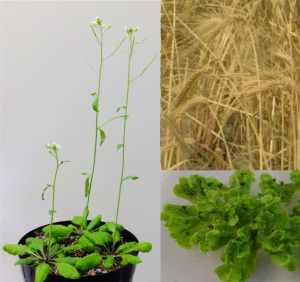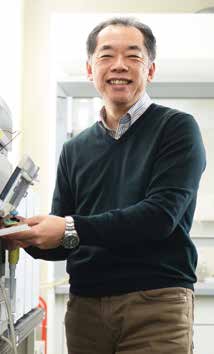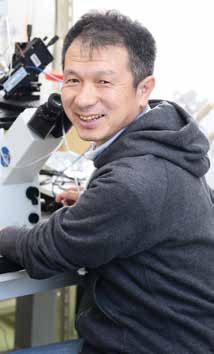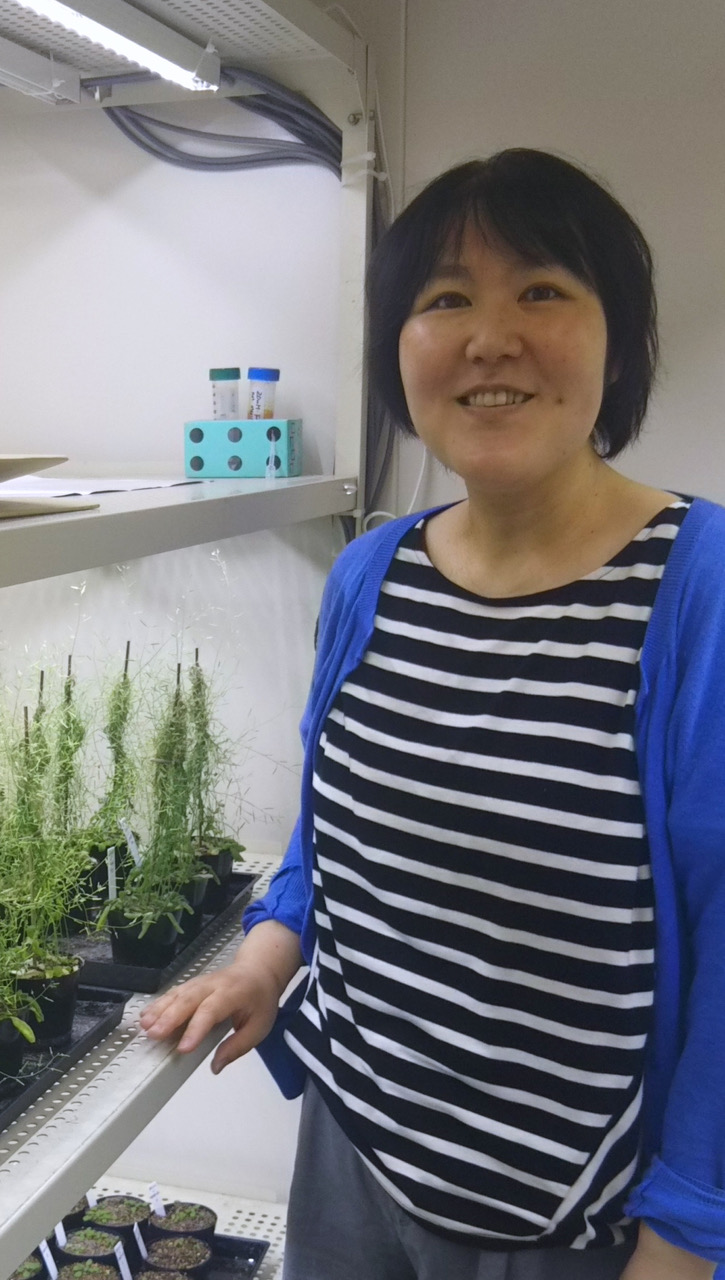Research Area : Signaling Mechanisms
Molecular genetic studies on the mechanisms for stress sensing and response in plants.
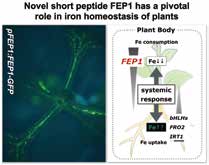 As autotrophic sessile organism, plants have developed unique systems to regulate biological phenomena such as development, environmental stress responses, and reproduction process. To understand and manipulate the plant behavior, we have been trying to describe the regulatory system for these molecules, deciphering the information possessed by these plant signaling molecules by molecular genetic approaches using model plants such as Arabidopsis. In these years, we are investigating novel short-peptide factors involved in the regulation of iron homeostasis responding to environmental changes.
As autotrophic sessile organism, plants have developed unique systems to regulate biological phenomena such as development, environmental stress responses, and reproduction process. To understand and manipulate the plant behavior, we have been trying to describe the regulatory system for these molecules, deciphering the information possessed by these plant signaling molecules by molecular genetic approaches using model plants such as Arabidopsis. In these years, we are investigating novel short-peptide factors involved in the regulation of iron homeostasis responding to environmental changes.
Establishment of data driven crop design technology.
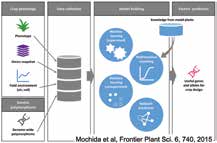
It has been known that useful agronomical traits of crops are dependent on both the genetic factors the crop possesses and environmental factors the crop lives. Importantly, these two factors are not independent and affect each other in a complex manner. We have been trying to identify the genetic factors and environmental factors critical to useful traits by describing the life-course dynamics in physiological status of field crops associated with the environment data. Using these isolated determinants, we successfully built models that can predict the agronomical traits at high accuracy. Such the models enable us to design the crops with suitable genetic factors to a given filed condition including the forecasted climates in the near future.
Study on Molecular Physiology of Stomatal Movement against Air Pollutants
Yield loss of crops due to airborne pollutants is estimated as 30-40% near future in Japan. Plants equip the mechanism to withstand such pollutants. One of the major mechanisms is elucidated as closing stomata to prevent the entry of gaseous toxicants. To gain insight into the molecular basis of plant response to airborne pollutant, I employ molecular genetic and physiological approaches to comprehend stress signaling mechanism of stomata.
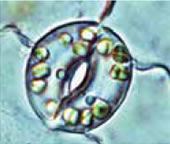
Ion Dynamics Study of Stomata, Roots and Inside of Leaves.
It has been known that useful agronomical traits of crops are dependent on both the genetic factors the crop possesses and environmental factors the crop lives. Importantly, these two factors are not independent and affect each other in a complex manner.
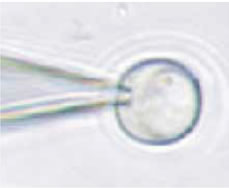
Although plants seems calm, silent and static, it is not real. Plants are always active and dynamic. For example, stomata move every day, every minute; tendrils move spiral around and root architecture keeps changing. These movement of plants are more or less associated with the mobilization of ions. I am an expert in ion dynamics study through electrophysiological techniques. My main research focuses are Ca2+ ion transport in guard cells and CO2 transport in mesophyll cells, which play crucial roles in photosynthesis under biotic and abiotic stresses.
Plant Hormone Quantification.
In addition to physiological analysis, chemical analysis using LC-MS is one of my missions as a stuff of Institute of Plant Science and Resources, Okayama University. I am taking a part of the comprehensive plant hormone quantification analysis group. Our group is having a large number of collaborators from all around the world.
Epigenetic regulation mechanisms of gene and transposon expression in plants
Genetic information are coded in DNA base sequences. However, epigenetic information outside of the DNA sequence also has been found to play an important role in gene and transposon expression. Such epigenetic information including DNA methylation and histone modification is known to be affected by the stage of growth and changes in the environment. My research interests are: i) the molecular mechanism that controls epigenetic status in plants; ii) the ways in which epigenetic information is transmitted to the next generation; and iii) the study on the variety and the change of epigenetic regulation systems in plant evolution.
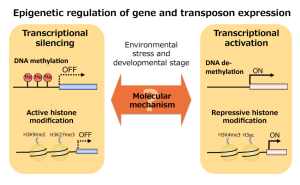
Analysis of transcriptional gene silencing mechanism in Arabidopsis
To reveal the mechanism of epigenetic gene silencing, we did mutant screening affecting transcriptional gene silencing in Arabidopsis thaliana, and recently identified new factors for transcriptional gene silencing. Arabidopsis thaliana is useful material for genetic analysis, but we also utilize several plant species for research e.g. barley, seaweed, and liverwort Marchantia polymorpha to analyze the function of epigenetic regulation in plant evolution.
